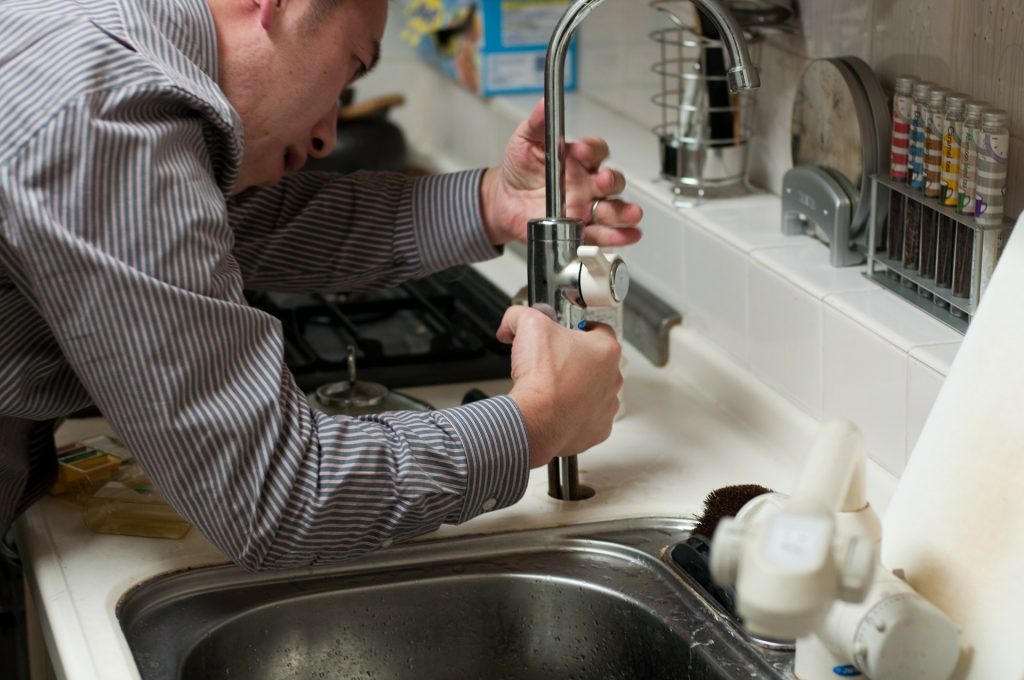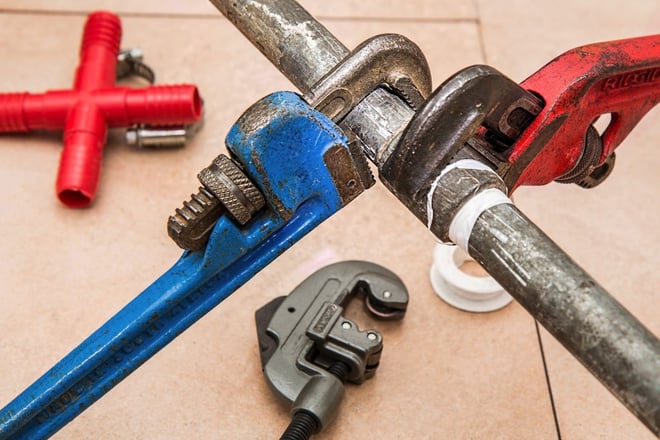Updated October 2022
Effective problem-solving in plumbing means having the right tools on hand and knowing which ones are best suited to each challenge. A pipe may have just burst and the house or office is rapidly filling with water—but a good plumber doesn't panic. He or she knows exactly which tools to reach for first.
Plumbing tools vary depending on the work environment (residential, commercial, industrial), but there are definitely some standard go-tos you'll use on a regular basis after becoming a plumber. Here are our top five.
1. Plungers—4 Different Kinds
You've got the standard cup plunger, the accordion plunger, the flanged plunger, and the classic toilet plunger. Each has its own design and purpose. Clogged sink? The standard cup is your best bet. Stubborn toilet blockage? You'll need the force and power of the flanged or accordion plunger.
The bottom line is that you'll use all four types of plungers during your apprenticeship and after becoming a plumber. These are standard in the plumber's tool kit.
2. An Auger for Tough Clogs
When a plunger can't get the job done, an auger is your next best bet. Never heard of the term "auger"? Sometimes called a plumber's snake, augers feature a coiled, helix-shaped wire. The plumber turns a hand crank to rotate the wire as it moves through the pipe, breaking up or snagging obstructions that are blocking water flow.
Here's a quick video that shows exactly how augers unclog drains, courtesy of Home Owner Series:
The mistake DIY amateur plumbers often make is opting for the most inexpensive auger, which simply isn't strong enough to get the job done.
Or they don't realize that the clog may not be in the u-trap at all, which means removing the toilet and running the auger down the sewer line—a somewhat intimidating task for most homeowners!
This is where a professional plumber steps in. Pros have the right tools plus the diagnostic and technical knowledge needed to get the job done right.
3. Top Snake
Plumbing expert Aaron Stickley wrote an entire article on the various kinds of snakes he uses most while on the job. Clearly, these are essential tools of the trade!
Stickley's advice for new plumber program grads? Always have a top snake on hand for smaller drainage issues, like clogs in tubs, showers, bathroom and kitchen sinks, and washing machines. He points out that top snakes come in both manual and electric form—and personally recommends electric for easier handling.
4. A Range of Pipe Wrenches
Pipe wrenches are found in plumbers' toolboxes all over the world. Of course, they come in different sizes, and the one you choose depends on the task at hand.
A compound leverage pipe wrench is ideal for seized joints, like a stuck shower head or corroded faucet that just won't budge.
An offset pipe wrench is used for tricky angles or tight spaces, and an end pipe wrench is used for work close to a wall. You'll want all of these in your toolbox after becoming a plumber.
5. Safety Gloves & Eyewear: Key Protection for Plumbers
Overlooked on many lists of plumber's tools, safety equipment is one of the most important items you'll use as a professional plumber.
Plumbers are exposed to chemicals and germs while on the job, and using gloves is a commonsense way to prevent injuries. Drain gloves or leather gloves offer substantial protection, but it's also wise to use latex gloves underneath to guard against drain bacteria.
Safety glasses are a good idea no matter what kind of plumbing work you're doing. Whether you're under a sink, using power tools, or handling chemicals, it's important to protect your eyes from harmful particles or corrosive agents.
Interested in learning more about pre-apprenticeship plumber training in Toronto?
Herzing College offers pre-apprenticeship plumber training that's specifically designed to give you the skills you need to impress an employer and get hired as an apprentice. An admissions advisor can take you through all the details of the course, including costs, financial aid, and how to apply.
Chat live with an advisor now. Or click below to explore the program further. We're here to help!







